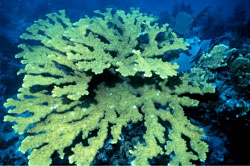 |
D. Scott Witherow Office: SC 204 Email: switherow@ut.edu
Postdoctoral Training:
|
Research Interests
My research interests are rather varied, and I always encourage students interested in biochemical research to come to talk to me about potential options. That being said, here are a couple of highlights:
Biochemistry Pedagogy
I enjoy coming up with new experiments to teach in the lab. If you look through my publications, you'll see that I have a number of paper  s dedicated to the design of new experiments/courses in the field of biochemical education. In doing this type of research, it is essential to have students go through and perform the experiments on their own. In many cases, these labs involve mini-projects that students perform over the course of a semester. I frequently have student research projects that involve the optimization of these experiments. (Figure 1, left: Molecular Biology Techniques)
s dedicated to the design of new experiments/courses in the field of biochemical education. In doing this type of research, it is essential to have students go through and perform the experiments on their own. In many cases, these labs involve mini-projects that students perform over the course of a semester. I frequently have student research projects that involve the optimization of these experiments. (Figure 1, left: Molecular Biology Techniques)
G Protein and Cell Signaling
Historically, my research has focused on various aspects of cell signaling. How do cells take a signal from outside of the cell and make changes happen inside a cell? One primary mechanism by which this happens is through a process called G protein-mediated signaling. These signaling pathways are important in many physiologic pathways. For instance, for vision to occur, G protein  signaling occurs in the retina, which leads to a signal being sent to the brain. I've conducted research on various aspects of these signaling transduction pathways. One of the most recent projects I've been working on is trying to purify a particular G protein from coral that is thought to be important for coral to "see" various colors. Healthy coral reefs are bright and vibrant. we hypothesize that a G protein is important for coral larvae to recognize these bright colors when they decide to settle into a spot on a reef to grow. (Figure 2, left: G Protein-Signaling Coral)
signaling occurs in the retina, which leads to a signal being sent to the brain. I've conducted research on various aspects of these signaling transduction pathways. One of the most recent projects I've been working on is trying to purify a particular G protein from coral that is thought to be important for coral to "see" various colors. Healthy coral reefs are bright and vibrant. we hypothesize that a G protein is important for coral larvae to recognize these bright colors when they decide to settle into a spot on a reef to grow. (Figure 2, left: G Protein-Signaling Coral)
Miscellaneous
I have also supervised student-designed research projects. Have an interesting idea of something biochemical you want to pursue? Let's talk about it and see if there's a way to make it happen. I find that when students have true ownership over a project, they are more motivated and put more work into it, which in turn means they get more out of it. Because of this, I am happy to work together with students who might have their own ideas for research, assuming they have some experience with the work and techniques necessary to do the project.

